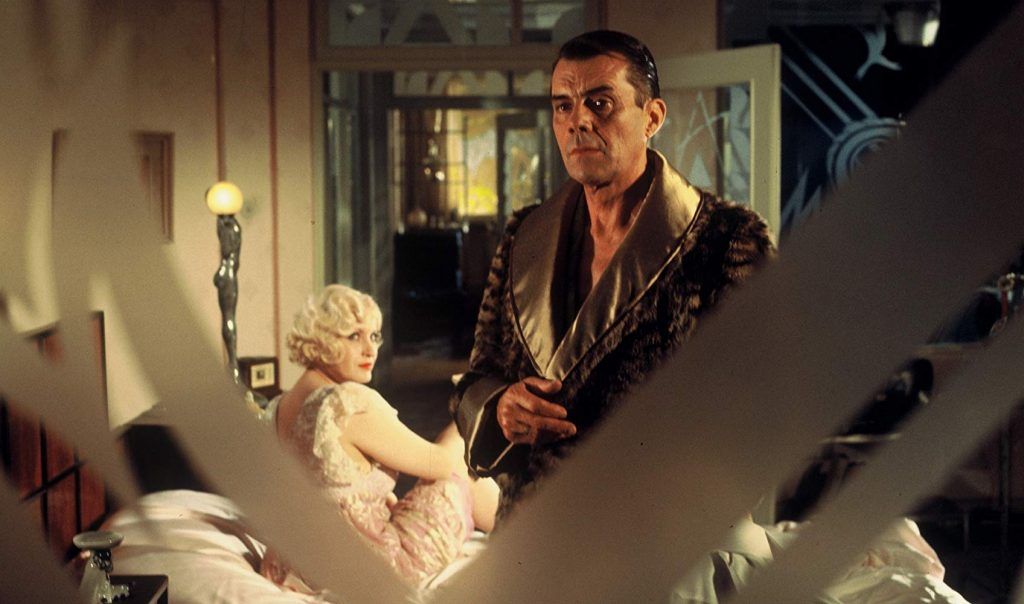
Despair (1978) was Rainer Werner Fassbinder’s first english-language feature film. Written by Tom Stoppard and starring Dirk Bogarde, Despair adapts Vladimir Nabokov’s novel of the same name relatively faithfully as far as plot is concerned. In addition to bringing his usual company of actors to the project, Fassbinder also brought a number of his singular pre-occupations.
The themes of disassociation and of the doppelgänger are constantly reiterated by Fassbinder’s Sirkian faming wherein doorways, windows and reflections fracture and distort space in an expressionistic manner. Cinematographer Michael Ballhaus tracks the players as they follow Fassbinder’s elaborate blocking as if they were literally caught in the gravity of Bogarde’s orbit. Despair, like the Bundesrepublik Deutschland Trilogie, turns German history into an externalized political expression of the protagonist’s internal conflicts.
The schisms within Hermann Hermann’s (Bogarde) personality mirror the fractious state of German politics in the early thirties that paved the way for Hitler and the rise of Nazism. This specific relationship between masculine identity crisis and fascism in Fassbinder’s Despair functions as a sort of rough draft for the far more nuanced and assured thematic explorations of Fassbinder’s monumental epic Berlin Alexanderplatz (1980). As was the case with Bolwieser (1977), Fassbinder’s inability to explore human psychology without the instruments of political discourse during this period proved fatal to the effectiveness of Despair.
Despair, kept at a remove by language and writer (Stoppard), seems to elude Fassbinder as a mechanism for this kind of investigation. The psychological concerns of Stoppard and Nabokov are secondary to Fassbinder’s agenda to reframe and interrogate German history through the lens of an individual character. However, the failures of Despair only serve to pinpoint the successes of Berlin Alexanderplatz and the Bundesrepublik Deutschland Trilogie.
Although an adequate enough thriller on its own merits, Despair is nonetheless a film of transition for Fassbinder. The highly stylized, single-minded portraits of self-destruction like In einem Jahr mit 13 Monden (1978), Faustrecht der Freiheit (1975), and Händler der vier Jahreszeiten (1971) were gradually being folded into the more political films such as Mutter Küsters’ Fahrt zum Himmel (1975) and Satansbraten (1976) and Despair catches Fassbinder in the midst of performing that aesthetic fusion. Scenes in Despair of Hermann Hermann caught up in his highly homoeroticized murder/suicide scheme are totally at odds with those expositional scenes that constantly belabor the political context of the setting. The focus of Despair is on Hermann Hermann’s journey towards self-annihilation or the destruction of his own ego. In this vein of the film Fassbinder excels.
